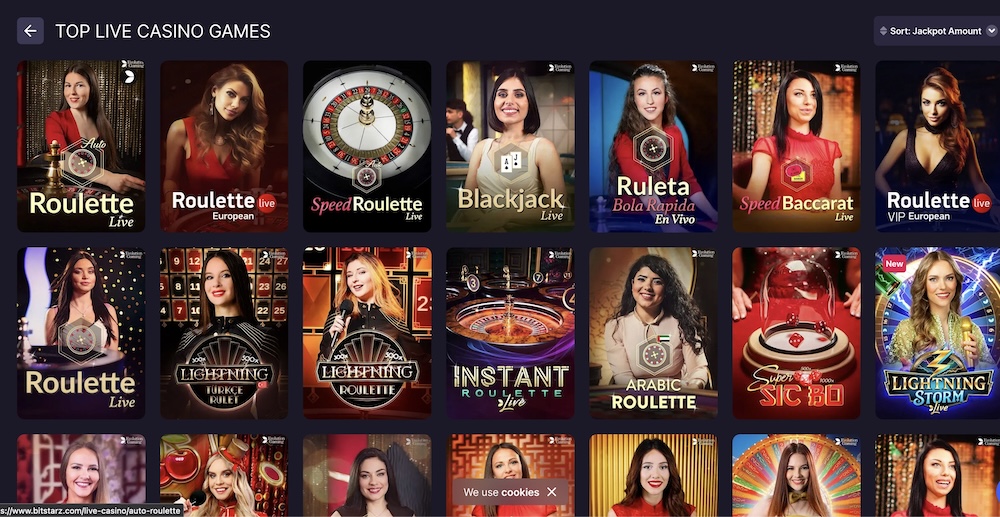
Online casino security is a crucial concern for any player considering placing bets on digital platforms. The rapid growth of online gambling has led to a heightened focus on how these platforms protect user data, ensure fair play, and operate under legal regulations. This article will explore the key security components that make gambling sites safe, providing a clear understanding of the measures in place to protect players.
Key Security Components in Online Casinos
Ensuring the safety of online casino players involves multiple layers of security protocols and measures. These include strict licensing and regulation, advanced encryption techniques to protect personal and financial data, and mechanisms to guarantee the fairness and integrity of the games. Below, we delve into each of these essential components.
Licensing and Regulation
Licensing is the foundation of online casino security. A legitimate platform must operate under a valid license issued by a recognized regulatory authority. The role of such regulatory bodies includes:
- Verifying the casino’s legitimacy: Making sure that the gambling site is a bona fide organization with a transparent ownership structure.
- Monitoring operations: Regularly auditing the casino’s activities to ensure compliance with local laws and international standards.
- Enforcing player protection: Mandating that casinos implement robust measures to protect players, including responsible gambling tools and secure transaction processes.
Licensing Checklist:
| Aspect | Requirement |
| License Verification | Operators must display a valid license number and the name of the regulatory body. |
| Regulatory Audits | Casinos must undergo periodic audits by independent third parties to ensure ongoing compliance. |
| Transparency | Information about the casino’s ownership and operational practices should be readily available. |
Players should always check for a valid license and look for information about the regulatory body before engaging with an operator. Licensed platforms are far more likely to offer a safe and fair gaming environment.
Encryption and Data Protection
Data protection is another crucial aspect of gambling sites’ security. When players share personal and financial information, it is vital that this data is kept secure from unauthorized access. This is where encryption technology plays a significant role.
- SSL Encryption: Secure Sockets Layer (SSL) encryption is the industry standard for protecting data transmitted between a user’s browser and the casino’s servers. An SSL certificate guarantees that sensitive information, such as credit card details, is encrypted and thus unreadable by potential hackers.
- RSA Hybrid Encryption: Some gambling sites employ more advanced RSA hybrid encryption methods, which combine both symmetric and asymmetric encryption techniques. This approach provides an additional layer of security, making it even harder for unauthorized parties to decrypt sensitive information.
Encryption Checklist:
| Security Measure | Description |
| SSL Encryption | Protects data in transit between the player and the gambling site. Look for “https://” in the casino’s URL. |
| RSA Hybrid Encryption | Combines multiple encryption techniques to enhance data security. |
| Data Privacy Policies | Gambling sites should have clear privacy policies that outline how they handle and protect user data. |
Fair Play and Game Integrity
The fairness of games is a primary concern for online casino players. A fair platform guarantees that all players have an equal chance of winning, and that outcomes are genuinely random. This is achieved through the use of Random Number Generators (RNGs) and transparent payout practices.
- Random Number Generators (RNGs): RNGs are algorithms that generate random outcomes for each game, eliminating any influence on the results by the casino. For a platform to be trustworthy, its RNGs must be regularly tested and certified by independent auditing firms, such as eCOGRA or Gaming Laboratories International (GLI).
- Return to Player (RTP): The RTP percentage is another indicator of fairness. It represents the proportion of all wagered money that a slot machine or game will pay back to players over time. Gambling sites must disclose the RTP of their games, and these figures should be verified by third-party auditors.
Fair Play Checklist:
| Fairness Indicator | Description |
| Random Number Generator | Used to verify that game results are random and not manipulated by the gambling site. |
| RTP (Return to Player) | Shows the expected payout percentage for games, verified by independent auditors. |
| Third-Party Certification | Look for seals of approval from reputable auditing organizations like eCOGRA or GLI. |
Security Features to Look for When Choosing an Online Casino
When choosing an online operator, it is very important to identify the key security elements. Below are the most important security aspects you should consider:
Secure Payment Methods
Secure and reliable payment methods are a hallmark of a trustworthy gambling site. Ensure the operator supports recognized and widely-used payment options like credit/debit cards, e-wallets (such as PayPal or Skrill), and bank transfers. These payment methods should be backed by SSL encryption to protect your financial transactions.
Regular Audits and Certifications
Reputable gambling sites undergo regular audits by independent third-party organizations, such as eCOGRA or Gaming Laboratories International (GLI). These audits verify the fairness of games and the integrity of the casino’s operations. A certified operator will typically display audit certificates on its website.
Mobile Casino Security
With the increasing use of mobile devices for online gambling, it is important to be careful that the mobile version of the casino has the same level of security as the desktop version. Look for platforms that use SSL encryption and have mobile-specific security measures in place, such as app-specific firewalls and regular updates to protect against vulnerabilities.
Understanding the Role of Casino Regulators and Auditors
Casino regulators and auditors play a critical role in maintaining the safety and fairness of online gambling environments. Here’s how they contribute:
Casino Regulators
Regulators are responsible for issuing licenses and enforcing legal standards that gambling sites must adhere to. They ensure that platforms operate fairly, securely, and responsibly. Examples of well-known regulators include the Curacao Gaming, Malta Gaming Authority (MGA) and the UK Gambling Commission (UKGC). These organizations set stringent criteria for licensing, including financial stability, security protocols, and responsible gambling measures.
Independent Auditors
Independent auditors, such as eCOGRA and GLI, conduct thorough examinations of a casino’s software and systems to ensure compliance with industry standards. They test the fairness of games through RNG (Random Number Generator) evaluations and verify that the operator adheres to its advertised RTP (Return to Player) percentages. Auditors also assess the casino’s security measures to protect player data.
How to Protect Yourself: Security Tips for Players
While online casinos implement numerous security measures, players should also take proactive steps to protect themselves. Here are some practical tips:
- Choosing a Secure Password: Use a strong, unique password for your casino account. Avoid using easily guessable passwords and consider using a password manager to create and store complex passwords securely.
- Verifying Casino Reputation: Before registering with a gambling site, research its reputation. Look for reviews from other players and check if the casino is listed on reputable review sites. Verify that the platform is licensed by a recognized authority and displays relevant audit certifications.
- Recognizing and Avoiding Scams: Be cautious of phishing attempts and unsolicited offers that seem too good to be true. Always access the casino’s website directly by typing the URL into your browser rather than clicking on links in emails or ads.
- Keeping Your Devices Secure: Make sure your computer or mobile device has up-to-date antivirus software and a firewall. Regularly update your device’s operating system and applications to protect against security vulnerabilities.
Debunking Myths: Are Online Casinos Really Safe?
The safety of gambling sites is a topic surrounded by various myths and misconceptions. To make informed decisions, it’s essential to separate fact from fiction. Below, we address some of the most common myths about online casino security and provide factual insights.
Myth 1: Online Casinos are Easily Rigged
Fact: Licensed and regulated gambling sites must adhere to strict standards of fairness and transparency. The use of random number generators (RNGs) is mandatory for all digital games, eliminating the possibility of manipulating results. These RNGs are regularly tested and certified by independent auditing firms such as eCOGRA and iTech Labs. As a result, the likelihood of games being rigged is extremely low in legitimate, licensed casinos.
Myth 2: Personal and Financial Data is at Risk
Fact: Reputable gambling sites employ advanced encryption technologies, such as SSL (Secure Socket Layer) and TLS (Transport Layer Security), to protect players’ personal and financial information. These encryption methods are the same as those used by major financial institutions, making it highly unlikely that data will be compromised.
Myth 3: Payouts Are Not Guaranteed
Fact: Licensed platforms are required by their regulators to have sufficient funds to cover all player winnings. Moreover, withdrawal processes are monitored to ensure timely payouts. According to GamblingTalk.net, casinos that delay or withhold payments without justifiable reasons risk being blacklisted or losing their licenses. Players can check for payment certifications and seals from trusted organizations to confirm the casino’s reliability in processing withdrawals.
Myth 4: Unlicensed Casinos Can Be Trusted
Fact: Playing at unlicensed gambling sites is one of the most serious risks a player can take. These platforms operate outside of the regulatory framework, which means there is no oversight to protect fair play, data protection and the safety of financial transactions. Without the protection offered by a licensing body, players are vulnerable to unfair practices and potential fraud. It’s crucial to only play at casinos that hold licenses from recognized authorities.
FAQs
What should I do if I encounter a problem with a gambling site?
If you encounter an issue, contact the customer support immediately. Look for options like live chat, email, or phone support. If the problem persists and you believe the casino is acting unfairly, you can escalate the issue to the licensing authority or an independent dispute resolution service.
How can I verify that a gambling site is licensed?
To verify a license, scroll to the bottom of the casino’s homepage. Most reputable gambling sites display their licensing information there. You can also cross-check the license number with the regulatory body’s official website.
Can I limit my spending at an online casino?
Yes, most gambling sites offer tools for responsible gambling, including deposit limits, wager limits, and loss limits. You can set these limits in your account settings to control your spending.
How do I know if a game is fair?
Fairness in games is ensured by the use of Random Number Generators (RNGs). Look for information on the gambling site about RNG testing and certification by independent auditors like eCOGRA.
What should I do if I suspect a casino of unfair practices?
If you suspect unfair practices, cease playing and withdraw any funds. Report the issue to the casino’s customer support and the regulatory body that issued their license. You can also share your experience on online forums to warn others.
